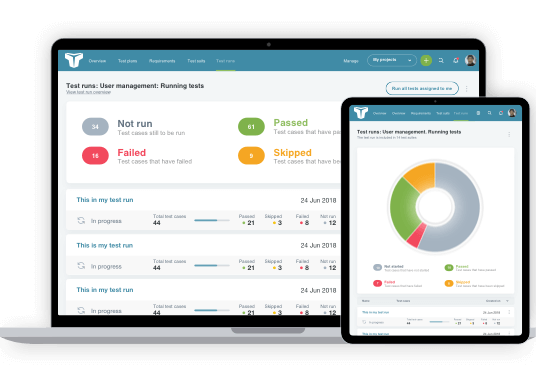The technology industry continues to grow every year. While automated testing has increased in popularity, software testing jobs aren’t going away any time soon. A career in software testing can be rewarding, challenging, and lead to many new opportunities. If you’re an aspiring software tester, keep reading. We’re going to discuss some tips for how to get your first job as a software tester.

Six Tips to Help You Get Your First Software Testing Job
Create an online presence
First things first. Start building a brand around yourself and be present and available online. Create a LinkedIn profile and set up a twitter account. Consider building a personal website to showcase your work, accomplishments, and passions. A good online presence creates relevancy and makes it easy for potential employers to discover you and seek you out as a possible candidate. Use technology to stay ahead (or at least on the same level) as the competition.
This goes without saying, but your resume should be ready to go. This first tip on how to get your first job as a software tester can be applied to many industries and roles.
Start with an internship
Internships are excellent ways to get your foot in the door. They’re also great for exploring different roles without a long-term commitment. My first internship was at a digital marketing company answering support tickets from country music fans. While there, I discovered the world of account management, project management, support operations, and you guessed… quality assurance.
Getting an internship with a suitable company can sometimes lead to being hired by that company. Either way, you’ll likely leave an internship with some experience and learnings that will help prepare you for the next internship, or full-time job.
Volunteer to do QA at your current company
Perhaps you’re already working for a company that has a need for a QA role. Maybe QA doesn’t exist there, or the QA team needs help. Whatever the case, if there’s an opportunity to help improve the quality of products, take initiative.
For example, I was a support manager at a previous role, and no one was doing QA. Working in support, I was often dealing with issues that could have been avoided had a proper QA system been in place. So I volunteered a few hours per sprint to help with testing efforts. This eventually lead to purchasing test management tools, and building out processes for how our products would be tested. We ultimately hired someone to take on QA full-time.
Get certified
Professional certifications give you a leg up compared to other candidates. Certifications show that you understand the concepts and skills required to do the job, and the top certification in the software testing industry is the ISTQB Software Testing Course. There are many other courses out there that offer certifications of completion as well.
Network, network, network
People often underestimate the power of networking, but I believe networking is a necessary ingredient to a successful career of any type. Let’s revisit the first tip: create an online presence. These two tips (create an online presence & network) go hand-in-hand. As you meet people, your online presence will help them remember who you are. So how do you network? Follow other testers on social media, attend conferences, join communities, invite people to coffee, and participate in meetups. This can be difficult for more introverted types, but anyone can do it and it can be highly effective. Being at the right place, at the right time can lead to some big opportunities… don’t miss out!
Study
Make sure you have a solid understanding of testing terminology, processes, and best practices. Read books, watch YouTube videos, and take testing courses to stretch your skills to the limit. In this rapidly evolving space, you must stay fresh and up to speed in order to stay relevant.
Conclusion
There’s no single strategy to finding a job in software testing. You must be creative, try different things, and step out of your comfort zone from time to time. If you have other tips for finding a job in software testing, we’d love to hear them! Tweet us at @testlodge
About the writer
Jake Bartlett
Jake Bartlett lives and works in Nashville, Tennessee. He has a background in software testing, customer support, and project management.
All Jake Bartlett's articles
